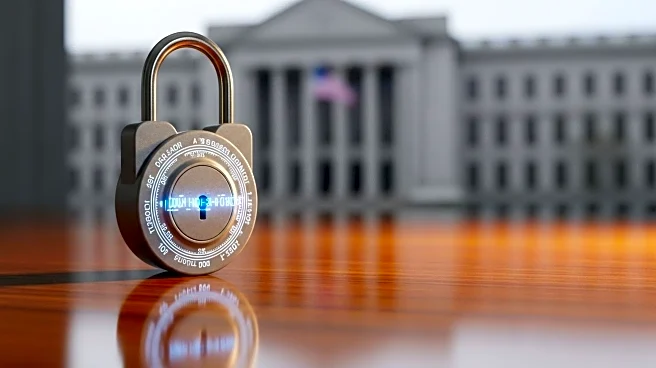What's Happening?
Oregon Secretary of State Tobias Read is in a standoff with the U.S. Department of Justice over a demand for detailed voter registration records. The conflict began with a July 10 email from the Department of Justice requesting information on individuals who may have committed election fraud or provided false information on voter registration forms. While Oregon is willing to provide public voter information for a fee, the federal request includes sensitive personal data such as driver's license numbers and social security numbers, which are not public. Read has refused to comply, citing privacy concerns and a lack of trust in the federal administration's ability to protect personal data.
Why It's Important?
This dispute highlights the tension between state and federal authorities over voter data privacy and election security. Oregon's resistance is part of a broader trend, as more than half of U.S. states have similarly refused to provide sensitive voter information. The situation underscores the ongoing debate over election integrity and the balance between preventing fraud and protecting individual privacy. The outcome of this conflict could influence future federal-state interactions regarding voter data and election oversight, potentially affecting how elections are managed and perceived across the country.
What's Next?
The Department of Justice may pursue legal action to obtain the requested data, as indicated by a September lawsuit. Oregon's stance could inspire other states to adopt similar positions, potentially leading to a broader legal and political battle over voter data access. The situation may also prompt discussions on federal election laws and the extent of federal authority in state-managed election processes. Stakeholders, including civil rights groups and privacy advocates, are likely to monitor developments closely, as the implications could extend to voter rights and data protection policies nationwide.
Beyond the Headlines
The conflict raises ethical questions about the use of personal data in the context of national security and election integrity. It also reflects broader societal concerns about government surveillance and the potential misuse of personal information. The situation in Oregon may contribute to a growing public discourse on the need for stronger data protection laws and the role of government in safeguarding citizen privacy. Additionally, the case could set a precedent for how states handle federal requests for sensitive information in the future.










